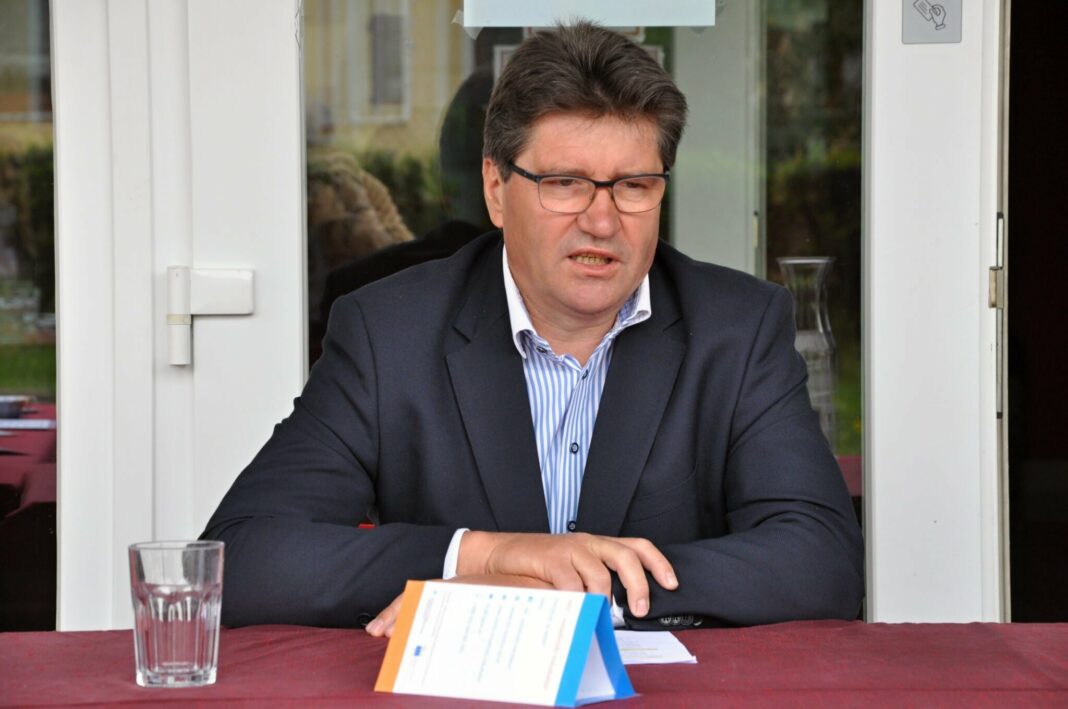By: Domen Mezeg (Nova24tv.si)
“Besides the migrant crisis, we also have the Roma issue and an increasing level of violence. Roma may be partly involved in smuggling as well. The minister stated that it is a coalition commitment and that he personally cannot do much. However, we, the local residents, know that we cannot influence European policies, which are currently favourable towards migration. I expect them to protect our citizens primarily. The only ones who can address this issue are Prime Minister Robert Golob and Foreign Minister Tanja Fajon,” commented the mayor of the most besieged municipality in Slovenia, Ivan Molan.
The municipality of Brežice is currently bearing the brunt of illegal migrations. Minister of the Interior Boštjan Poklukar has announced the removal of the fence, while, contradictorily, they plan to increase police presence in the most besieged areas.
We spoke to Mayor Ivan Molan about the issue, particularly focusing on how the local residents are experiencing the situation. “Our locals, not only in Rigonce but also in Slovenska vas, Rakovec, and Bizeljsko, suggested from the very beginning that the panel fence should remain around the settlements or near residential houses.” The mayor pointed out that the panel fence was erected on private land, with the owners’ consent at the time, but now they intend to demolish it. However, there is an issue in Slovenska vas, where the old fence protecting the industrial zone was removed and replaced with a new panel fence. Now they plan to remove it, which would effectively enclose private parcels. It is true that the people of Brežice did not object to the removal of the fence in areas where there are no villages (in fields, etc.).
Minister Poklukar has his hands tied due to the coalition agreement
“This is an issue at the EU level where they turn a blind eye. There is a silent agreement to literally allow migrants across the borders. I believe that Croatia, being part of Schengen, should either reject these individuals or grant asylum only to those who are genuinely eligible. The fact is that this is exploitation of asylum policies,” Molan emphasises. He explains that migrants are usually registered in Croatia, then they take a train to the last station in Croatia, discard their documents, enter Slovenia, and once again apply for asylum, claiming they have no documents. Minister of the Interior Boštjan Poklukar has highlighted that the issue is complex. It is worth noting human trafficking and the fact that Germany needs a new workforce (around two million). Slovenian politics, however, seems too weak in this regard to address the issue differently in Brussels.
“Only Golob and Fajon can address this issue!”
Local residents are turning to him, and he has already had a meeting with the minister (two months ago). “Besides the migrant crisis, we also have the Roma issue and an increasing level of violence. Roma may be partly involved in smuggling as well. The minister stated that it is a coalition commitment and that he personally cannot do much. However, we, the local residents, know that we cannot influence European policies, which are currently favourable towards migration. I expect them to protect our citizens primarily. The only ones who can address this issue are Prime Minister Robert Golob and Foreign Minister Tanja Fajon.” Initially, the issue should be addressed in cooperation with Croatia to prevent illegal migrants from being directed to Slovenia, as they are literally being directed here. Subsequently, the solution should be sought at the European level.
“The government cares more about migrants than the safety of locals!”
The situation is similar to that of 2015. At that time, the number of illegal crossings reached up to 10,000 to 15,000 per day, and now it is around 600 during the weekend, 200 per day, and even 1,300 during one weekend. Slovenia has become like a “Red Cross” where migrants are simply registered and then sent on their way to other countries. People are afraid, and older individuals are afraid to leave their homes. Young girls and boys are no longer daring to go for walks. For the older people working in the fields, it is uncomfortable when twenty young men walk by them. Fortunately, they have not witnessed any major incidents yet, but there is always uncertainty when it comes to strangers with unknown life stories. Brežice residents are also troubled by the fact that no one has really reported on the extent of the migrant issue in the municipality for two months. Even more saddening is the fact that those who have tried to raise awareness about the issue are being discredited. Molan: “The government cares more about migrants than the safety of locals!”

